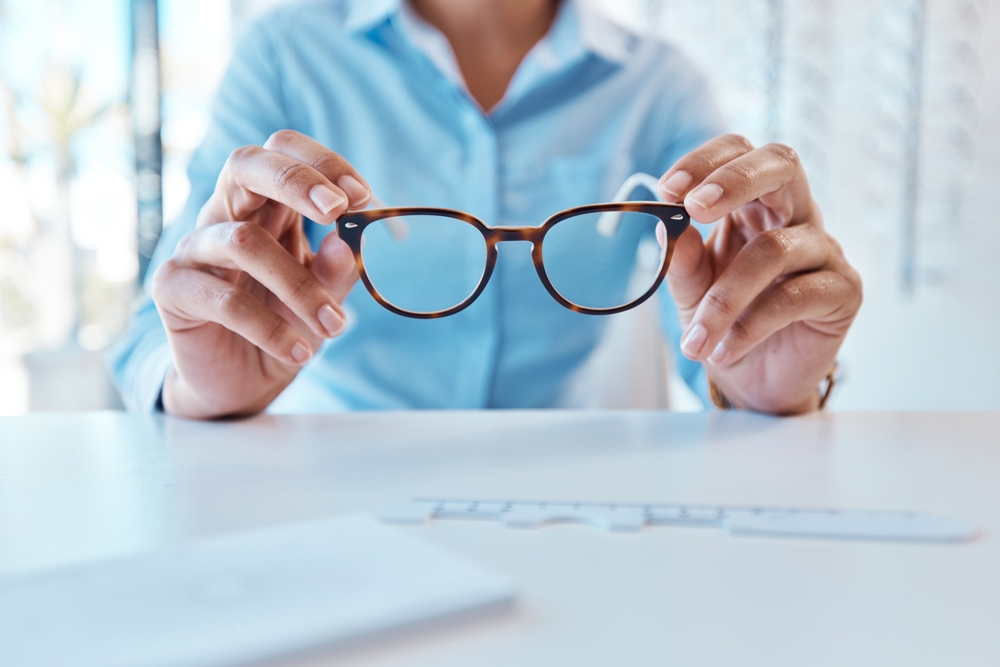
Making the Switch from Glasses to Contacts
Are you tired of the hassle and inconvenience of wearing glasses? If so, it might be time to consider making the switch to contact lenses. Contact lenses offer a range of benefits over traditional eyeglasses, from improved visual acuity to enhanced freedom and versatility in your daily life.
Types of Contact Lenses
When it comes to contact lenses, there are several different types to choose from, each with its own unique features and benefits. Soft contact lenses are the most common type of contacts and are made from flexible, hydrophilic (water-loving) materials. These lenses are comfortable, easy to insert and remove, and can provide excellent vision correction. Soft contacts come in a variety of modalities, including daily disposable, weekly/biweekly disposable, and monthly or extended-wear lenses.
Rigid gas permeable, or RGP, lenses are made from a more rigid, durable material that allows oxygen to pass through to the cornea. These lenses can provide sharper vision than soft contacts, particularly for individuals with astigmatism. RGP lenses are generally more challenging to insert and remove, but they are also more resistant to protein and lipid buildup.
In addition to the standard lens types, there are also specialty contact lenses available for individuals with unique vision needs or eye conditions, such as keratoconus, dry eyes, or irregular corneal shapes.
When selecting the right type of contact lens, it's essential to consider factors such as your prescription, eye health, lifestyle, and personal preferences. Your optometrist can help guide you through the process and recommend the most suitable option for your needs.
The Contact Lens Exam and Fitting Process
Before you can start wearing contact lenses, you'll need to undergo a comprehensive eye exam and fitting process. This is a crucial step to ensure that the contacts you choose are the right fit for your eyes and provide the optimal vision correction.
During the eye exam, your eye doctor will assess the overall health of your eyes, measure the curvature of your corneas, and determine your exact vision prescription. They may also use specialized equipment to evaluate the tear film, blink rate, and other factors that can impact the comfort and performance of contact lenses.
Once your eye exam is complete, your eye care professional will work with you to select the most appropriate type and size of contact lenses for your needs. They may provide you with a trial pair of contacts to wear and evaluate during the fitting process. This allows them to assess the fit, comfort, and visual acuity of the lenses, and make any necessary adjustments.
Tips for Proper Contact Lens Care and Maintenance
Maintaining the cleanliness and proper care of your contact lenses is essential for ensuring long-term eye health and optimal visual performance. Here are some key tips to help you care for your contacts:
• Wash Your Hands: Always wash your hands thoroughly with soap and water before handling your contact lenses. This helps to prevent the transfer of dirt, oils, and bacteria to your eyes.
• Use the Recommended Cleaning and Storage Solutions: Follow the instructions provided by your eye care professional and the lens manufacturer when it comes to the appropriate cleaning, disinfecting, and storage solutions. Never use tap water or saliva to clean or store your contacts.
• Replace Lenses as Directed: Depending on the type of contact lenses you wear, you'll need to replace them on a daily, weekly, biweekly, or monthly basis. Adhering to the recommended replacement schedule is crucial for maintaining eye health and preventing complications.
• Avoid Sleeping in Contacts: Unless your contacts are specifically designed for extended wear, it's essential to remove them before sleeping. Sleeping in contacts can increase the risk of eye infections and other complications.
• Take Breaks from Contacts: If your eyes feel tired or irritated, consider taking a break from wearing contacts and switch to your glasses for a while. This can help your eyes rest and recover.
• Schedule Regular Eye Exams: Even if you're satisfied with your current contact lenses, it's important to schedule regular eye exams with your eye care professional. They can monitor the health of your eyes and make any necessary adjustments to your lens prescription or type.
By following these tips for proper contact lens care and maintenance, you can enjoy the freedom and convenience of contact lenses while protecting the long-term health of your eyes.
Schedule Your Contact Lens Exam with Eyewellniss Today
Making the switch from glasses to contact lenses can be a game-changer in your daily life. Contact lenses offer a range of benefits, from improved visual acuity and enhanced convenience to a more natural and cosmetic appearance. By understanding the different types of contact lenses available and the proper care and maintenance required, you can find the perfect solution to meet your unique vision needs and lifestyle.
Are you ready to experience the freedom and convenience of contact lenses? Contact Eyewellniss to schedule a comprehensive eye exam and contact lens fitting. Visit any of our offices in Edgewater, Livingston, Watchung, or Paramus, New Jersey. Please call (201) 945-8931, (973) 535-1171, (908) 322-5020 or (201) 712-0888 to book an appointment today.








